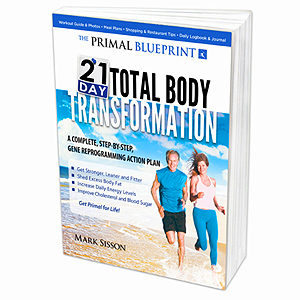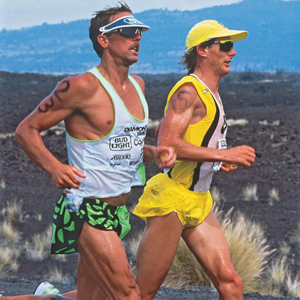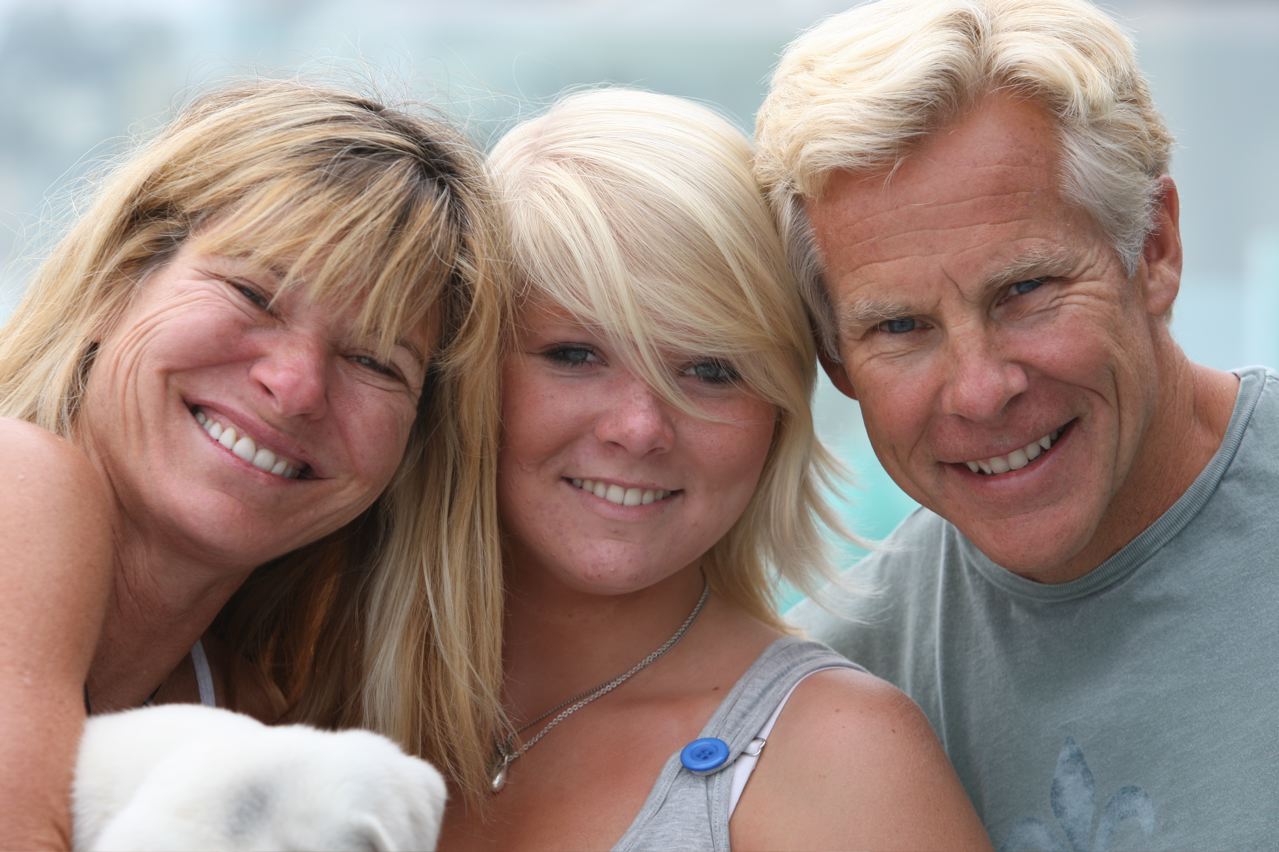More Primal Blueprint

If you move from Real America to California, Heartlanders may wish you well, but they may also assume you'll drink the Kool Aid we serve here in LA-LA Land, and just shake their heads and hope for the best.
If you then move to West L.A., the rest of us Angelenos will shake our heads and hope for the best.
And if you move yet again to Malibu, even those who live in Santa Monica, Bel Air, and Pacific Palisades will probably hope for the best, or just assume you're over the edge and past redemption.
Mark Sisson and his lovely wife Carrie live in Malibu.
I write this to help prepare you for Mark's latest update to The Primal Blueprint, which is the just-published The Primal Blueprint 21-Day Total Body Transformation: A step-by-step, gene reprogramming action plan.
In this book Sisson—former 2:18 marathoner, former 4th place finisher in the Hawaiian Ironman, former ITU secretary general and, among other things, author of triathlon's "blueprint" anti-doping regime—writes that you can reprogram your genes in three weeks and, as a result, unleash the healthy, happy, ripped and fit person that's inside you and trying to get out.
Sisson admits he's neither a doctor nor a member of the academic illuminati. He also admits he's got a lot of naysayers, including most of the folks in the two categories he admits he's not in. Nevertheless, he stands by his guns, and he also displays them in the book (many shots of Mark's guns grace the book).
The gist of Sisson's view is that there is good news for you: civilization has not been around long enough to eradicate from your genetic code the way that your ancestors lived throughout prehistory. All you have to do is give your DNA a whif of the sort of diet, exercise, and lifestyle common to men and women as our species evolved over the millennia, and it will take the hint and react accordingly.
In a way, it's not unlike the barefoot running movement. In fact, it's just like that, except Mark extrapolates this past running, and over and above everything else you do in life (eat, sleep, exercise).
The 21 Day Total Body Transformation centers around diet. Mark feels that modern man took a left turn away from health when he discovered, and optimized the growth of, grains. Going gluten free is a great start, according to Mark, but, just a start. His "reprogramming" diet is not spartan, it's not hard. Lots of great stuff on the menu: steak, eggs, fat, even saturated fat. Bad foods are those with highly bio-available sugars. While he does not follow or align with glycemic-index watchers, much of what he writes about parallels or is at least reminiscent of this trend.
While diet takes up the largest part of this book, Mark talks a fair bit about exercise, and how man is genetically predisposed toward either very long, slow, slogs, or ballistic, fast exertions like sprints and the lifting of heavy weights. Consequently, Mark's view of training is that we ought to mimic and enhance this very predisposition through a regimen that alternates very slow, very easy, perhaps long (and perhaps not) exertions with the occasional very fast or ballistic sessions.
One might wonder whether the admonitions in the book are anti-triathlon—whether Mark feels that triathlon is, in general, an activity that is antithetical to the best health habits. So I called him up and asked him. He's noncommittal, except to say he believes triathletes would be helped if they incorporated the diet, and in broad strokes the training philosophy, into their workouts. Simon Whitfield and Jonas Colting are both examples of athletes whose training and eating regimens he admires.
By urging us to reprogram our genes to utilize fat, rather than carbohydrates, as our primary fuel source, Mark is not far afield from the sorts of ideas emanating from Phil Maffetone, adopted by Mark Allen and others. The idea of "teaching" our triathlon bodies to be fat burning engines, and glucose uptaking machines, has been championed by long distance standouts for decades.
My layman's question about genetic reprogramming stems from my assumption that even prehistoric man enjoyed a fair bit of genetic diversity, since anthropologists cite the gut as a highly adaptable organ, highly subject to the pressures of natural selection, and explains why Western Europeans could not suffer the diets of West Coast Native Americans, and vice versa. Likewise the survival pressures placed on, say, West versus East Africans, or Scandinavians or Aleuts versus tribes that would one day become Gauls or Goths.
How monolithic is our DNA? I don't know. If Mark is not a biochemist, rather just an author, I am likewise not a biochemist, just a reader. Nevertheless, when Mark talks about reprogramming our genes, I'm forced to wonder, whose genes? A Native American from the Southwest whose gut was uniquely adapted to eating staple foods like atole—a highly astringent acorn mash that would pucker the gut of an 18th-century Spanish friar? Or a Scandinavian goat or bovine milk drinker, whose gut was able to produce lactase?
Still, when Mark writes, I'm challenged, I'm stretched, and I'm forced to think. Mark throws down. It's up to me, as a reader to respond. That's why I just about always eagerly page through his latest book. Even if he does write it from his home office in Malibu.
The Primal Blueprint 21-Day Total Body Transformation: A step-by-step, gene reprogramming action plan is a large format, heavy-page-weight paperback, 192 pages, liberally sprinkled with color photos, and sells for $13.77. It's also in a Kindle version
.
The book's author is Mark Sisson, and relies as well on the writing/consulting skills of fellow former pro triathlete Brad Kearns. As of this writing, this book is #4 on the Amazon best seller list. Mark Sisson's prior book, The Primal Blueprint, reached #2 on Amazon's best seller list. In total there are four Primal Blueprint books in print.





